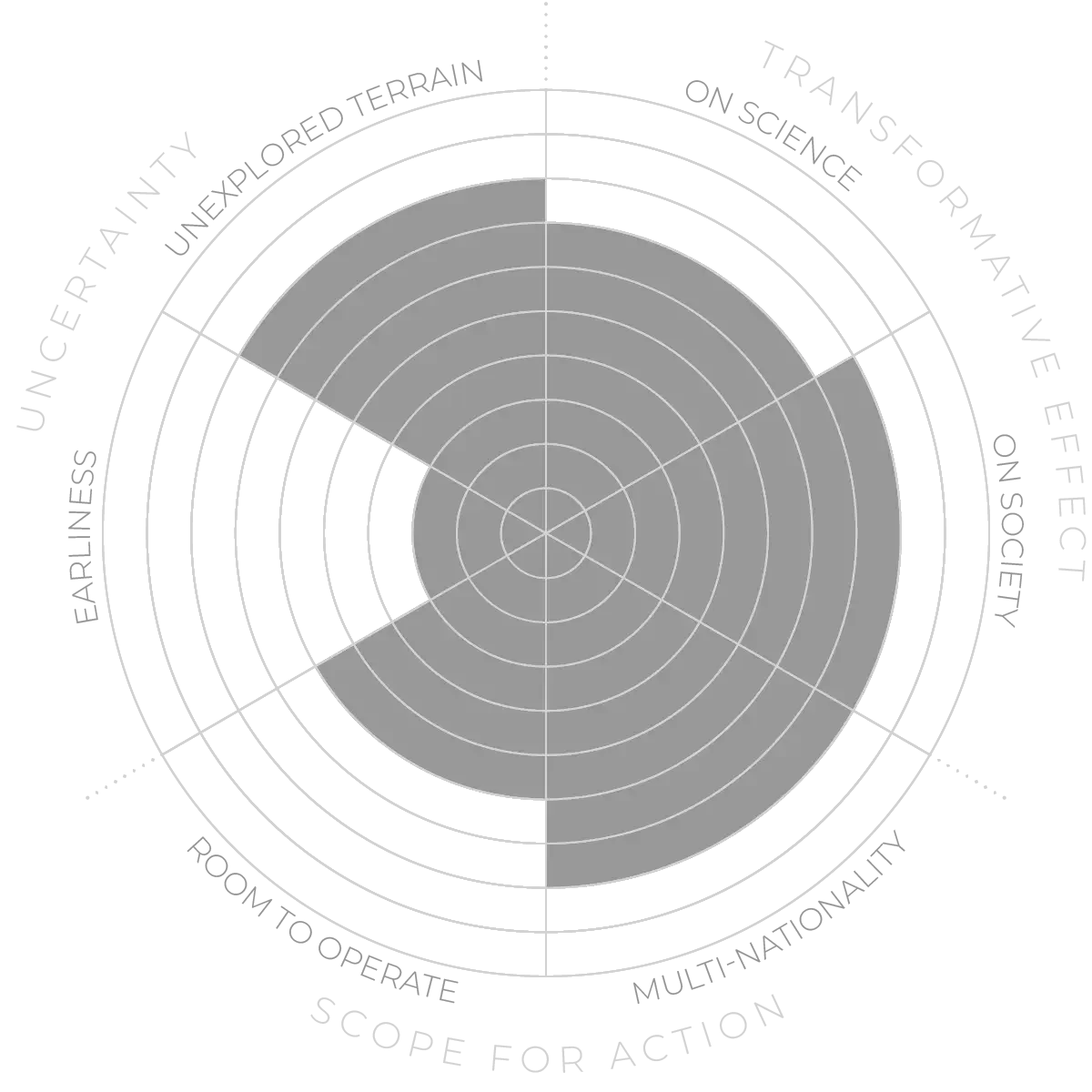Future Horizons:
10-yearhorizon
Models predict citizen response to policy
25-yearhorizon
Decision-making forecasts improve
Mathematical tools may nonetheless be able to extract rules and descriptions for human behaviour in the aggregate.12 There are, for instance, mathematical relationships between quality of societal infrastructure, population size, crime statistics and income distributions. In addition, understanding the kinds of network structures that exist in online and other communities, or organisational structures in particular disciplines, can help describe and model human behaviour and characteristics. Such phenomenological modelling can reveal the core dynamics that drive large-scale transformations in complex systems where first-principles models are impossible. These insights, if gained with sufficient mathematical rigour, can be applied to help shape human behaviour, not just to describe it. Data analysis carried out on societal systems facilitates the exposure of systemic risks13 or hidden biases, such as might be found in legal, governmental or corporate decision-making. Mathematically-derived insights can also provide ways to go beyond simple market dynamics, facilitating new, urgently required hybrid markets such as those needed for sustainable development and healthcare.14 Understanding of social-network structures can help with robust communication in an information-saturated world, enabling the exchange of ideas beyond the originator’s bubble or to avoid echo-chamber effects.15
One impediment to progress is not lack of mathematical tools but a lack of data on human behaviour and decision-making. Historical records are too sparse to create precise economic models, and there is a dearth of controlled experiments generating useful, cleanly interpretable data. Mathematically driven data science can be expected to help fill the gap, maybe incorporating new advances in the understanding of human behaviour such as that provided by neuroscience.16
Society - Anticipation Scores



